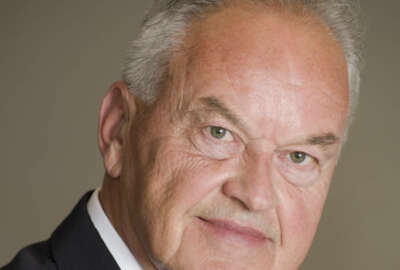
Donald Trump, taxes & your job
What do Donald Trump's leaked 1995 tax returns have to do with federal workers? Senior Correspondent Mike Causey says maybe nothing, maybe a lot.
What does the surprise revelation of GOP candidate Donald Trump’s 1995 tax returns mean to his campaign and, maybe, to you as a voter? Last week, somebody sent three pages of his old tax return to The New York Times. They show business losses of more than $800 million and raise the possibility that he didn’t (quit legally) pay taxes for a decade or more. So what, if anything, is in it for you as a voter-taxpayer-civil servant?
One of the many questions is who sent the returns to the Times. And why? And what, if anything, next?
This has been an election campaign like no other. The professionals tell us that both of the major party candidates have the highest negatives, ever!
If you work for the federal government you have a lot riding on the election, which is just five weeks away. In addition to electing your leader (POTUS) and commander-in-chief, you will also be picking your CEO for at least the next four years. And he or she will pick the men and women who run your department, administration or agency. And they in turn will pick the 4,000 plus political appointees who will be your direct bosses. Plus, you are very likely a taxpayer so you have a stakeholder interest in the election and you probably fall into one of three categories.
- You will cast what you hope is a positive vote, pulling the lever or punching the card for the candidate you like (love) the most.
- You will cast an intentionally negative vote holding your nose and voting for the least offensive (in your opinion) of the two major party candidates.
- You will vote for a third party candidate or skip the 2016 election.
What candidates will or won’t do to the government is always an issue. It was assumed government would shrink under President Ronald Reagan, but it grew. It was assumed it would grow under President Bill Clinton, but it shrunk by more than a quarter million jobs through buyouts, contracting out and some layoffs. All but one federal union supported candidate Bill Clinton over incumbent President George. H.W. Bush.
More commentary
Aside from accepting the endorsement of several major postal and federal unions, candidate Hillary Clinton has had little to say about specific changes she would make in the federal workforce. Candidate Trump happily accepted the endorsement of the Border Patrol Council of the American Federation of Government Employees union, although the AFGE is backing Clinton.
At this point, one can surmise that the Trump campaign is wondering a number of things. Like who mailed the copies of the tax returns to the Times?
- Did they come from some inside the Trump campaign (or from someone with access to his financial records) who has a grudge against Trump?
- Did they come from someone inside the IRS?
- Did they come from inside the Trump campaign who, maybe, thinks the limited leak would prove his business acumen?
We may never know from whence the leak came. Or why those particular years were leaked. But IRS employees, at least some of them, might be a little nervous. House Republicans have a long track record of contracting out tax-collection services, and cutting the IRS budget. Most recently they tried to impeach Director John Koskinen for his alleged after-the-fact involvement /coverup?? in the tax-exempt status of some conservative political groups.
Candidate Trump has spoken about making it easier to fire federal workers and beefing up the Defense Department. And streamlining tax laws. But he hasn’t launched into the anti-bureaucrat rhetoric of many House Republicans.
A long-time IRS employee said the leaked tax returns could have come from an inside-the-operation enemy of Trump, from someone in the IRS, or from the Trump camp itself. He said a number of Trump’s returns are still under audit and “I would hazard a guess” that officials in the audit and enforcement wing of the IRS are looking to see if there was a leak, and if so, by whom.
This could, like so many “scandals” on both sides, go away and be replaced by a bigger revelation. But if politicians learn — or believe — that the leak came from the government, the fallout could hurt everybody in the government.
Nearly Useless Factoid
Successful marketing helped the tuba replace the ophicleide — a keyed bugle of the Renaissance age — in 19th century orchestras. The ophicleide was a fine instrument, but the tuba was considered more up-to-date.
Source: Sheet Music Plus
Copyright © 2025 Federal News Network. All rights reserved. This website is not intended for users located within the European Economic Area.
Mike Causey is senior correspondent for Federal News Network and writes his daily Federal Report column on federal employees’ pay, benefits and retirement.
Follow @mcauseyWFED





